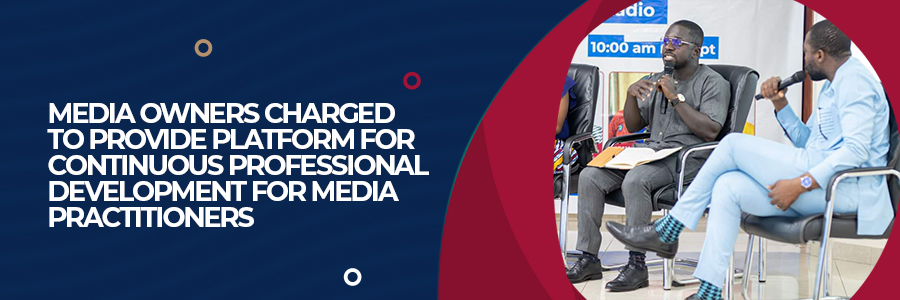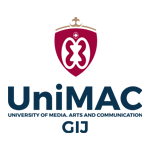
The Acting Rector of UniMAC-GIJ, Prof. Eric Opoku Mensah, has asked media owners to provide an opportunity for media practitioners to improve on their competencies. He said in the face of changes in the industry because of technology, continuous professional development is paramount.
“My position is that it behoves media owners or media houses to provide platform for continuous professional development for media practitioners. This is because all over the world the practice of journalism is changing and therefore even people who have had formal training before the work, I think they should go back to school at some point in time and then learn new trends.”
Prof. Opoku-Mensah was speaking at a World Radio Day event organised by the school in partnership with UNESCO. He challenged the GJA to partner with formal training institutions such as the UniMAC-GIJ to give requisite training to practitioners to keep abreast of the changing times.
“Recently, we did training for them through the Ministry of Information. We realised that there are many media practitioners without any formal training, and that has serious consequences so far as the quality of our reporting and practice of journalism is concerned. So, I will advise especially GJA, that as part of its leadership, have collaboration with formal training institutions like UniMAC GIJ, so that, at least if you practice for a certain number of years, you go back to school.
Prof. Opoku Mensah also called on professional bodies to strictly regulate the sector to always maintain professionalism.
Delivering a speech on behalf of the GJA president, Public Affairs Officer of the Association, Rebecca Ekpe, called on the National Media Commission and the National Communication Authority, as well as other relevant regulatory authorities in the broadcast space, to be resolute and keen in sanitising the sector.
“We wish to call on the National Media Commission (NMC), as the regulatory body, and institutions of authority such as the National Communications Authority (NCA), to collaborate to call erring radio broadcasters and stations to order. We expect the NMC in particular to be proactive in its monitoring function and sanction radio stations that violate professional and ethical principles.”
Madam Ekpe, in emphasising the importance of radio, said the GJA is concerned about broadcasts used to foment trouble.
“Indeed, the GJA is deeply concerned about the many instances of radio programmes or broadcasts that tend to foment violence to a very large extent rather than promote peace. We call on the owners and managers of such radio stations to refine their programmes and ensure sanity on their airwaves. It is disheartening to note that sometimes the owners and managers of radio stations who are expected to guide radio broadcasters on the path of professional righteousness are themselves the masterminds and promoters of unprofessional conduct that tend to undermine peace.”
She added that a major step needed to sanitise the airwaves is the passage of the Broadcasting Bill and urged the Executive and Legislature to give it maximum attention and get the bill passed immediately.
There was a panel discussion which focused on the theme, “Forging peace, civility, and addressing incitement to violence: the role of radio”.
The event attracted practitioners, students, academia, and the clergy. World Radio Day is celebrated annually on February 13.
–By: Rachel Kakraba
